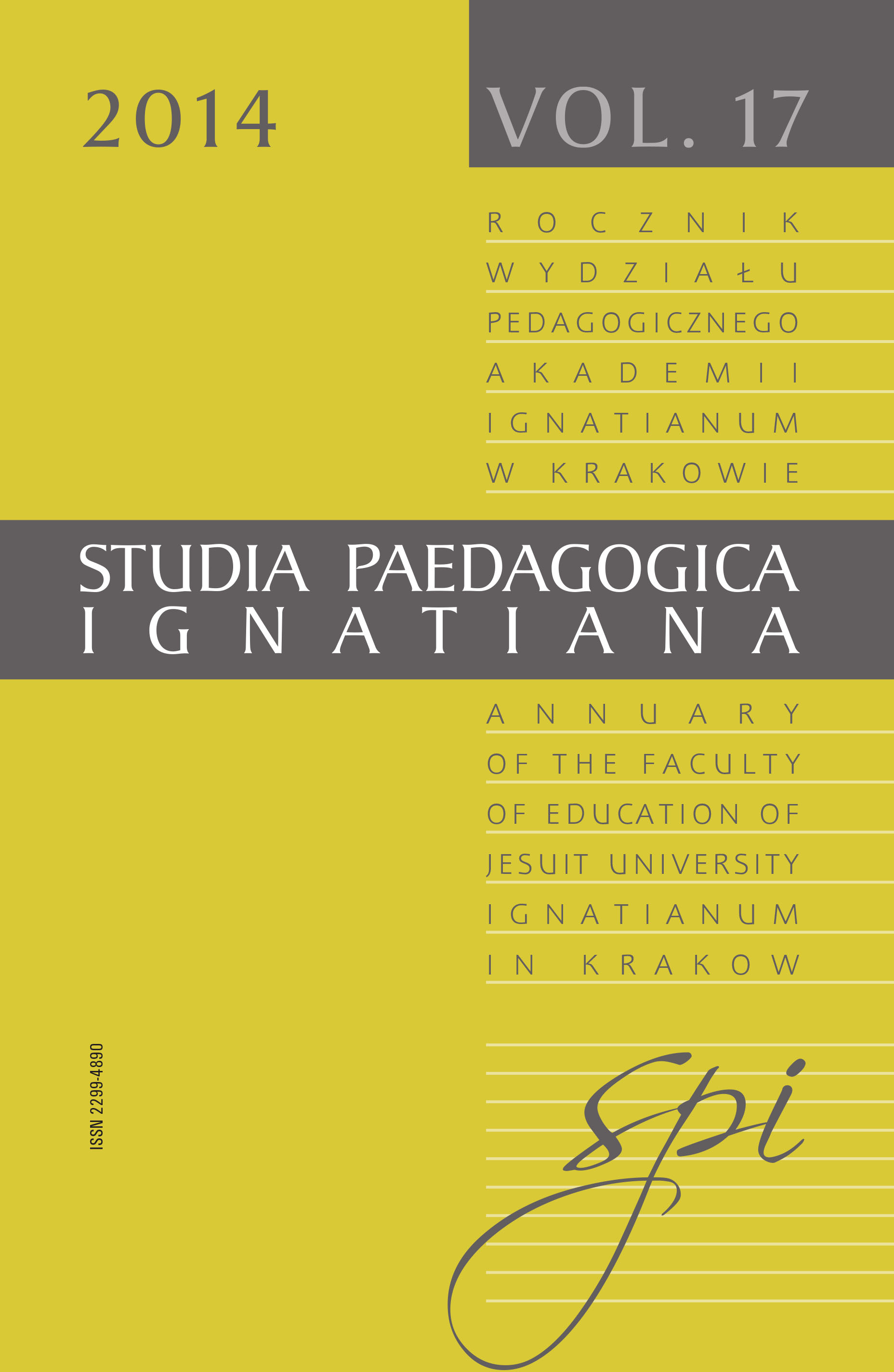Dobro – Prawda – Piękno w sztuce naszego czasu
DOI:
https://doi.org/10.12775/SPI.2014.006Słowa kluczowe
piękno, prawda, dobro, kontemplacji, forma, treść, wartość, artysta, sztukaAbstrakt
W obiegowym znaczeniu zdolności i talent są dla artysty czymś naturalnym i oczywistym. Tymczasem na sukces artystyczny, choćby najmniejszy, składa się oprócz nieuchwytnego talentu także praca. Praca wytężona, systematyczna i bezinteresowna. Ta bezinteresowność w sztuce jest podstawą wszelkiej twórczej działalności. Każde dzieło sztuki, malarskie, rzeźbiarskie, muzyczne czy literackie (poezja) jest w pewnym sensie wyzwoleniem osobowości. Sztuka jest obszarem uczuć – jest emocją, która dba o dobrą i właściwą formę. Sztuka powinna poprzez swoją jakość kształcić, uspokajać, ale również niepokoić, zmuszać odbiorcę do refleksji i zamyślenia, także nad własnym życiem. Ważne aby człowiek wykształcony był również ukształtowany poprzez sztukę, filozofię, religię a nawet politykę. Historia dowodzi trwałej wartości klasycznych rzeźb i świątyń greckich. Nie jest też konieczne, aby wszystkie wartości były w równym stopniu obiektywne czy subiektywne. Sztuka w Polsce przeobrażała się i zmieniała w zależności od epoki. Inna była w XV wieku, inna podczas zaborów, w okresie międzywojennym, a jeszcze inna w stanie wojennym (1981–1983) oraz po odzyskaniu niepodległości po roku 1989. Minęło wiele lat, a wychowanie przez sztukę w naszym szkolnictwie nie uległo żadnej poprawie. Zamiast nauki o sztuce panuje wątpliwość czy w ogóle warto się tym zajmować? Agresja natomiast coraz bardziej rozprzestrzenia się, nie tylko na ulicy, ale także w szkołach, choć nauczyciele czasem nie chcą tego zauważać. Aby przywrócić właściwą kolej rzeczy i hierarchię wartości, sztuka jest nam w tym bardzo potrzebna.
Bibliografia
Jan Paweł II, List do artystów, Drukarnia Watykańska, Watykan 1999.
Matusewicz C., Humor, dowcip, wychowanie. Analiza psychospołeczna, „Nasza Księgarnia”, Warszawa 1976.
Pascal B., Myśli, przeł. T. Żeliński (Boy), PAX, Warszawa 1953.
Read H., Sens sztuki, przeł. K. Tarnowska, PWN, Warszawa 1965.
Reale G., Utrata poczucia formy. Platon i ontologiczny wymiar piękna, przeł. J. Merecki, „Ethos” 1997, nr 4(40).
Sochoń J., Mój dom, mój bliźni, moja Ojczyzna… Zapiski wiary, „Ethos” 1997, nr 4(40).
Tatarkiewicz W., Historia filozofii, t. 3: Filozofia XIX wieku i współczesna, PWN, Warszawa 1958.
Tatarkiewicz W., Parerga, PWN, Warszawa 1978.
Pobrania
Opublikowane
Jak cytować
Numer
Dział
Licencja
Autor zgłaszając swój artykuł oświadcza, że:
jest Autorem artykułu (zwanego dalej Utworem) i:
- przysługują mu wyłączne i nieograniczone prawa autorskie do Utworu,
- jest uprawniony/a do rozporządzania prawami autorskimi do Utworu.
Udziela Uniwersytetowi Ignatianum w Krakowie nieodpłatnej, niewyłącznej, nieograniczonej terytorialnie licencji do korzystania z Utworu na następujących polach eksploatacji:
- utrwalania utworu w formie papierowej, a także na nośniku cyfrowym lub magnetycznym;
- zwielokrotnienia utworu dowolną techniką, bez ograniczenia ilości wydań i liczby egzemplarzy;
- rozpowszechniania utworu i jego zwielokrotnionych egzemplarzy na jakimkolwiek nośniku, w tym wprowadzenia do obrotu, sprzedaży, użyczenia, najmu;
- wprowadzenia utworu do pamięci komputera;
- rozpowszechniania utworu w sieciach informatycznych, w tym w sieci Internet;
- publicznego wykonania, wystawienia, wyświetlenia, odtworzenia oraz nadawania i reemitowania, a także publicznego udostępniania utworu w taki sposób, aby każdy mógł mieć do niego dostęp w miejscu i czasie przez siebie wybranym;
- w zakresie praw zależnych do Utworu, obejmujących w szczególności prawo do dokonania koniecznych zmian w Utworze, wynikających z opracowania redakcyjnego i metodycznego, a także do dokonania tłumaczenia Utworu na języki obce.
Udzielenie licencji następuje z chwilą przekazania Utworu na rzecz Uniwersytetowi Ignatianum w Krakowie. Uniwersytet Ignatianum w Krakowie jest uprawniony do udzielania dalszych sublicencji do Utworu, w zakresie udzielonego prawa. Licencja jest ograniczona czasowo i zostaje udzielona na okres 15 lat, licząc od daty jej udzielenia.
Polityka prywatności
Statystyki
Liczba wyświetleń i pobrań: 947
Liczba cytowań: 0



